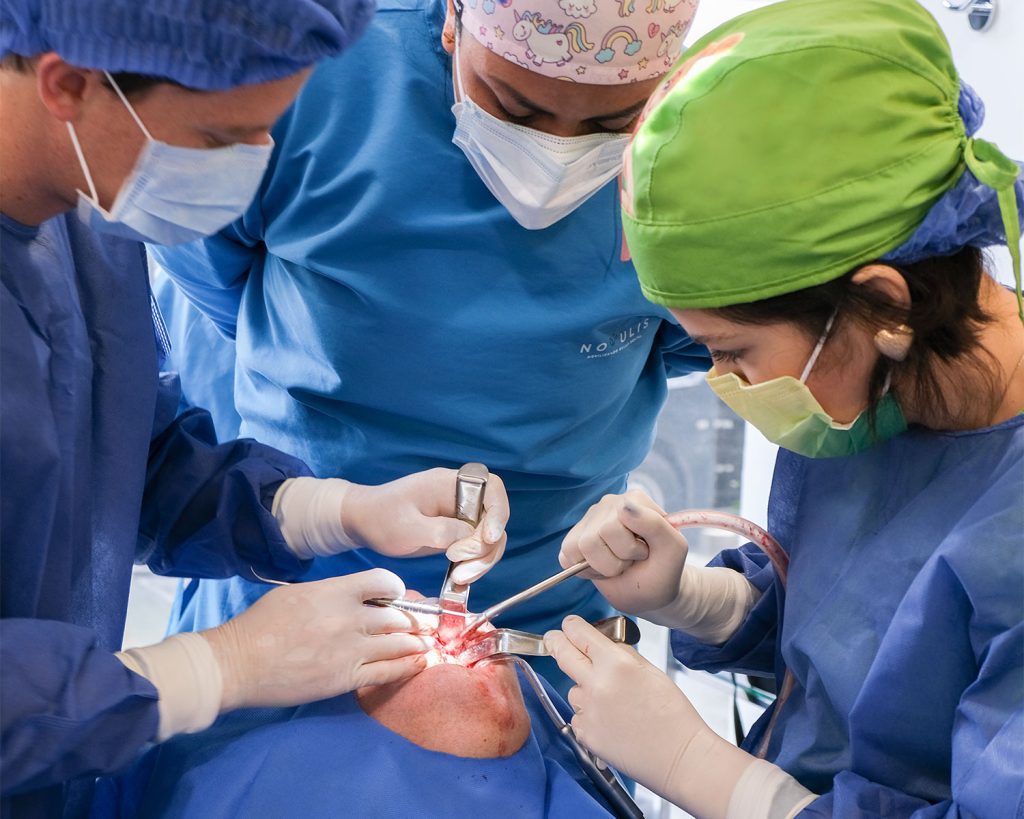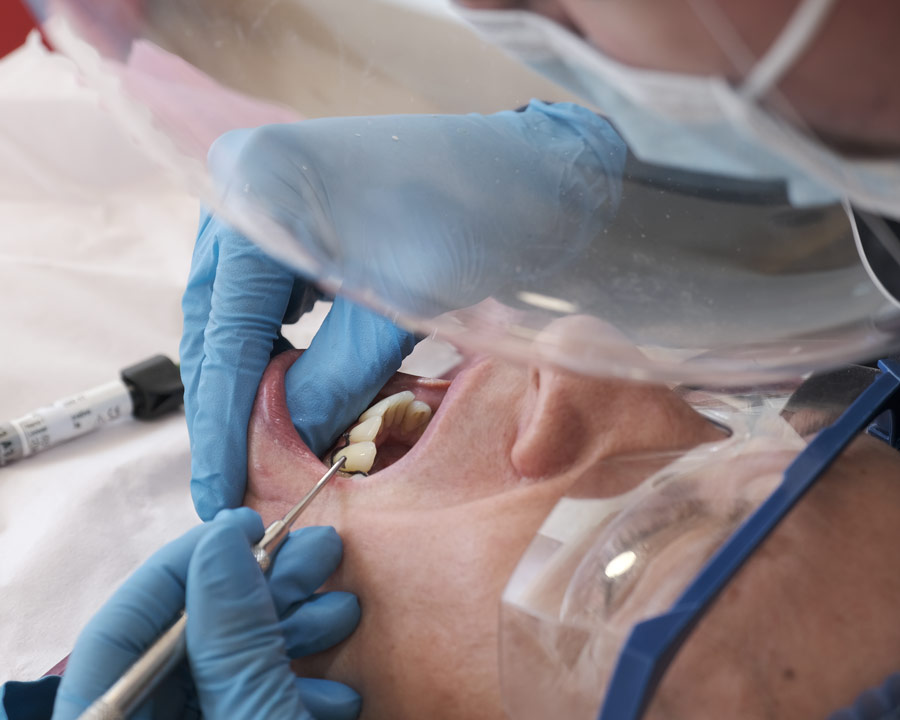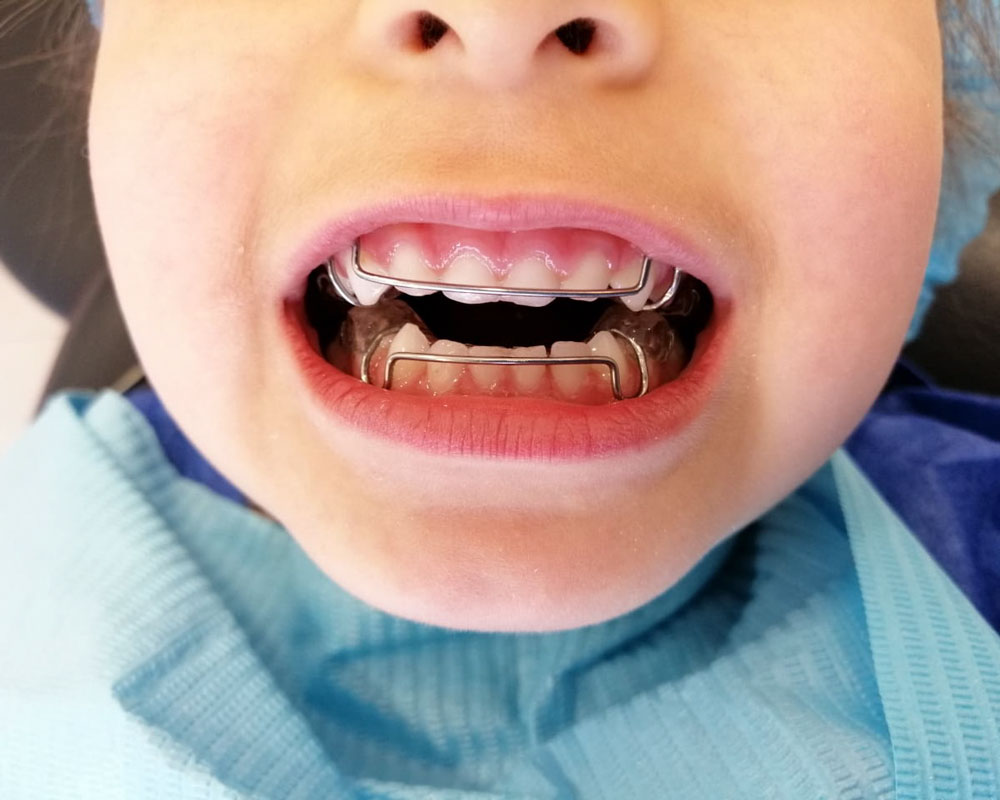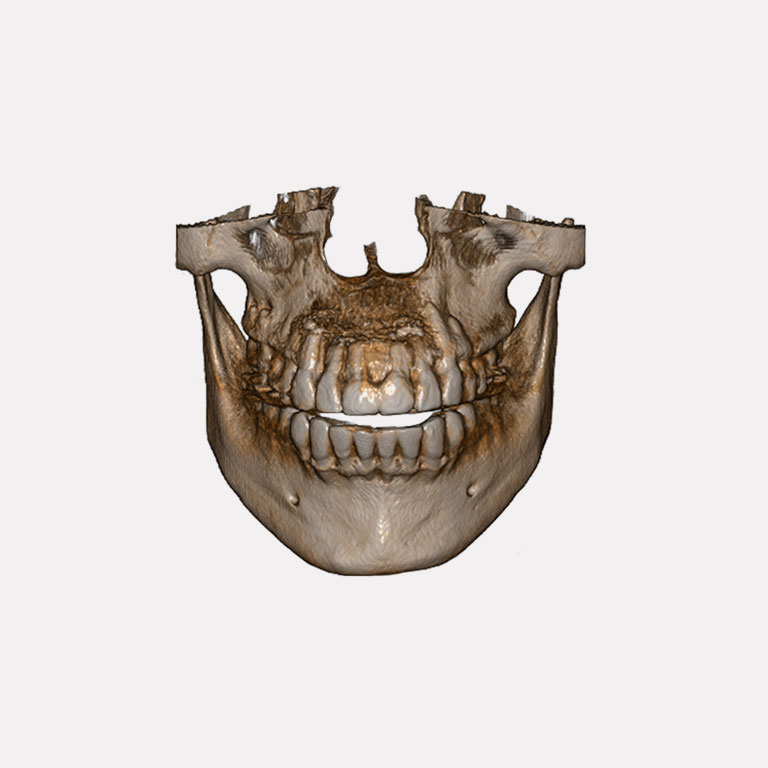
Cirugía Maxilofacial
Contamos con una de las ramas de la odontología más importante, que ayuda a modificar y rectificar patologías faciales y orales que ocasionan una mala mordida, hasta la deformación del rostro.

Dr. Virgilio Leon
Cirujano Oral y Maxilofacial

¿Qué es Cirugía Maxilofacial?
¿Por qué se debe realizar cirugías maxilofaciales?
¿Qué patologías se tratan con Maxilofacial?
Enfermedades o patologías relacionadas a la cavidad bucal como quistes o tumores derivados de los dientes y de sus estructuras cercanas.
Anomalías de los tejidos blandos, por ejemplo, los frenillos labiales o linguales, que interfieren en el desarrollo del habla de los niños o en tratamientos de ortodoncia. También se puede presentar deformaciones requieran de la remoción o remodelado quirúrgico.
Anomalías esqueléticas, por ejemplo, que interfieran en la rehabilitación oral del paciente, estos pueden ser defectos dentro de la boca hasta anomalías faciales que incluyen la mala posición de los huesos de la cara y dientes produciendo asimetrías faciales.
Patologías genéticas o congénitas, que incluyen malformaciones o defectos en la estructura facial, que pueden afectar en la vida cotidiana de un paciente.
Alteración de la articulación temporomandibular, que provoca la limitación de actividades, como hablar, comer o abrir la boca y generen dolor en diferentes zonas.
Tipos de cirugía Maxilofacial
Cirugía con fines protésicos: Se realiza una intervención quirúrgica en la que se prepara el hueso para la colocación de prótesis. Por ejemplo, aumento óseo con diferentes métodos de regeneración ósea.
Cirugía con motivos ortodónticos: Se realiza la reubicación de dientes por medio de cirugía.
Cirugía Oncológica: Comprende el adecuado diagnóstico de quistes y tumores para su tratamiento y su debida reconstrucción en caso de ser agresivos.
Cirugía ortognática: Esta cirugía corrige los defectos de posición de los huesos maxilares para una adecuada mordida ,además mejora la estética y armonía facial del paciente.
Preguntas Frecuentes
Dependiendo de los antecedentes personales del paciente, se requieren de estudios específicos preoperatorios para un adecuado tratamiento y evitar complicaciones pre y postquirúrgicos. Esto incluye exámenes de sangre, radiografías, tomografías, etc.
Para realizar un procedimiento quirúrgico, dependiendo del caso, se indica medicación para evitar infección, dolor e inflamación.















